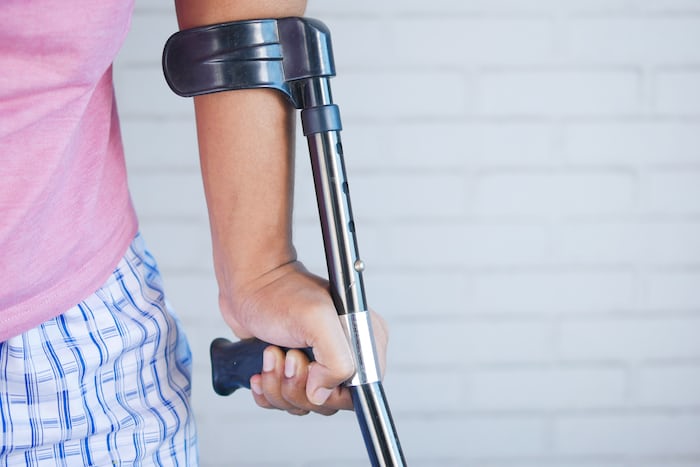Personal injury protection (PIP) is a type of car insurance coverage that pays for medical expenses, lost wages, and other related expenses in the event of a car accident. PIP is mandatory in some states, while it is optional in others.
Many people wonder whether PIP is necessary for them, especially if they already have health insurance or other types of car insurance coverage.
PIP is designed to provide additional coverage for medical expenses and lost wages that may not be covered by other types of insurance. It can be especially helpful if you or your passengers are injured in a car accident, regardless of who is at fault.
PIP can cover expenses such as hospital bills, doctor visits, rehabilitation, and even funeral expenses in some cases.
Nevertheless, whether PIP is necessary for you depends on several factors, including your state’s laws, your health insurance coverage, and your other car insurance policies.
Let’s take deeper dive into understanding personal injury protection and the factors that can determine if you need one.
What is Personal Injury Protection?
Personal Injury Protection (PIP) is a type of car insurance coverage that pays for medical expenses and lost wages in the event of an accident. PIP is often referred to as “no-fault insurance,” meaning that it covers injuries regardless of who is at fault for the accident. PIP is mandatory in some states, while it is optional in others.
Coverage
PIP coverage typically includes the following:
- Medical expenses: PIP covers medical expenses for injuries sustained in a car accident, such as hospital bills, surgeries, and doctor visits.
- Lost wages: PIP covers lost wages if an injury prevents the policyholder from working.
- Funeral expenses: PIP may cover funeral expenses if someone dies in a car accident.
- Rehabilitation expenses: PIP may cover rehabilitation expenses, such as physical therapy, if the policyholder needs it after an accident.
It is important to note that PIP coverage varies by state, and the amount of coverage may differ depending on the policy. In some states, PIP coverage is limited to medical expenses only, while in others, it may also cover lost wages and other expenses.
Do You Need Personal Injury Protection?
Whether or not you need PIP coverage depends on your state’s laws and your personal situation. If you live in a state where PIP is mandatory, you will need to purchase it. If you live in a state where it is optional, you will need to weigh the cost of the coverage against the potential benefits.
If you have health insurance that covers car accident injuries, you may not need PIP coverage. However, if your health insurance has a high deductible or co-pay, PIP coverage may be beneficial. Additionally, PIP coverage may be useful if you do not have disability insurance or a savings account to cover lost wages.
In summary, PIP coverage can be a valuable addition to your car insurance policy, particularly if you live in a state where it is mandatory or if you do not have adequate health insurance or disability coverage.
Why is Personal Injury Protection Necessary?
Personal injury protection (PIP) is a type of car insurance that covers medical expenses, lost wages, and other related expenses if the driver or passengers are injured in a car accident. PIP is mandatory in some states, but it is optional in others. This section will discuss why PIP is necessary and its benefits.
No-Fault Insurance
One of the main reasons why PIP is necessary is that it is a no-fault insurance. This means that it covers medical expenses and other related expenses, regardless of who is at fault for the accident. In other words, if a driver is injured in a car accident, they can file a claim with their own insurance company, regardless of who caused the accident.
Medical Payments Coverage
PIP also provides medical payments coverage, which covers medical expenses for the driver and passengers in the car. This coverage can be used to pay for hospital bills, doctor visits, and other medical expenses related to the accident. Medical payments coverage can be especially important if the driver or passengers do not have health insurance.
Liability Insurance
While liability insurance is required in most states, it only covers damages that the driver causes to other people or property. PIP, on the other hand, covers the driver’s own medical expenses and other related expenses. Liability insurance does not cover medical expenses or lost wages for the driver or passengers in the car.
Other Benefits
In addition to covering medical expenses and lost wages, PIP can also cover funeral expenses and other related expenses if the driver or passengers are killed in a car accident. PIP can also provide coverage if the driver or passengers are injured in a hit-and-run accident or if they are hit by a car while walking or biking.
Overall, PIP is necessary because it provides coverage for medical expenses and other related expenses that liability insurance does not cover. PIP is especially important for drivers who do not have health insurance or who cannot afford to pay for medical expenses out of pocket.
Where is Personal Injury Protection Required?
Personal injury protection (PIP) is a type of car insurance that covers medical expenses and lost wages in the event of an accident. PIP is optional in most states, but it is required in certain states where no-fault insurance laws are in place.
Florida
Florida is one of the states that requires drivers to carry PIP coverage. The minimum amount of coverage required is $10,000 for medical expenses and $5,000 for death benefits.
Hawaii
Hawaii is another state that requires PIP coverage. The minimum amount of coverage required is $10,000 for medical expenses.
Kansas
In Kansas, PIP coverage is required as part of the state’s no-fault insurance laws. The minimum amount of coverage required is $4,500 for medical expenses and $900 a month for lost wages.
Kentucky
Kentucky offers a choice of no-fault or some ability to sue, but if a driver chooses no-fault, they must carry PIP coverage. The minimum amount of coverage required is $10,000 for medical expenses and lost wages.
Massachusetts
Massachusetts requires drivers to carry PIP coverage. The minimum amount of coverage required is $8,000 for medical expenses and lost wages.
Michigan
Michigan is a no-fault state that requires drivers to carry PIP coverage. The minimum amount of coverage required is unlimited medical expenses and lost wages.
Minnesota
Minnesota is another state that requires drivers to carry PIP coverage. The minimum amount of coverage required is $40,000 for medical expenses and $20,000 for lost wages.
New Jersey
New Jersey requires drivers to carry PIP coverage. The minimum amount of coverage required is $15,000 for medical expenses and $5,000 for lost wages.
New York
New York is a no-fault state that requires drivers to carry PIP coverage. The minimum amount of coverage required is $50,000 for medical expenses and lost wages.
North Dakota
North Dakota requires drivers to carry PIP coverage. The minimum amount of coverage required is $30,000 for medical expenses and $30,000 for lost wages.
Utah
Utah is another state that requires PIP coverage. The minimum amount of coverage required is $3,000 for medical expenses.
Puerto Rico
Puerto Rico is a territory of the United States that requires drivers to carry PIP coverage. The minimum amount of coverage required is $3,000 for medical expenses.
In summary, PIP coverage is required in 12 states and Puerto Rico as part of their no-fault insurance laws. In these states, drivers must carry a minimum amount of PIP coverage to ensure they are protected in case of an accident.
What Does Personal Injury Protection Cover?
Personal Injury Protection (PIP) is a type of car insurance that covers medical expenses, lost income, and other related expenses if you or your passengers are injured in an accident, regardless of who is at fault. PIP coverage is mandatory in some states, while it is optional in others.
Medical Expenses
PIP coverage typically covers medical expenses related to an accident, including hospitalization, surgery, and rehabilitation. The coverage can also include ambulance services, X-rays, and other diagnostic tests.
Child Care
If you have children and are injured in an accident, PIP coverage can help cover the cost of child care while you recover. The coverage can pay for a babysitter, daycare, or other child care services.
Lost Income
If you are unable to work due to your injuries, PIP coverage can help cover your lost income. The coverage can pay for a portion of your salary or wages, up to a certain limit.
Rehabilitation Expenses
PIP coverage can also help cover the cost of rehabilitation, including physical therapy, occupational therapy, and other related services to help you recover from your injuries.
Funeral Expenses
If you or a passenger is killed in an accident, PIP coverage can help cover the cost of funeral expenses. The coverage can pay for funeral services, burial or cremation expenses, and other related costs.
Property Damage
In some states, PIP coverage can also help cover property damage caused by the accident, such as damage to your vehicle or other property.
Overall, PIP coverage can be beneficial for those who want additional protection in case of an accident. However, it is important to understand the coverage limits and requirements in your state before purchasing PIP coverage.
Conclusion
In conclusion, Personal Injury Protection (PIP) is an optional type of car insurance coverage that can provide additional protection for drivers and their passengers in case of an accident. PIP can cover medical expenses, lost wages, and other related costs, regardless of who is at fault for the accident.
While PIP is not required in all states, it can be a valuable addition to your insurance policy, particularly if you live in a no-fault insurance state. In these states, PIP can provide additional coverage beyond standard liability insurance, which only covers damages to other drivers and their vehicles.
However, it is important to note that PIP coverage can overlap with other types of insurance coverage, such as bodily injury and medical payments coverage. Before purchasing PIP, drivers should review their existing insurance policies to ensure they are not duplicating coverage.
Additionally, PIP coverage can vary depending on the state and insurance provider. Some states require a minimum amount of PIP coverage, while others allow drivers to choose their coverage limits. Drivers should carefully review their policy terms and coverage limits to ensure they are adequately protected in case of an accident.
Overall, while PIP is not necessary for all drivers, it can provide valuable protection and peace of mind in case of an accident. Drivers should carefully consider their insurance needs and review their policy terms to determine if PIP is a good fit for their coverage needs.
YOU SHOULD ALSO READ:
- Road Traffic Personal Injury Claims: A Comprehensive Guide
- Can You Get Legal Aid for Personal Injury Claims? Explained
- Personal Injury Claim Medical Examination: What to Expect and How to Prepare
- Personal Injury Claim: What You Need to Know About Broken Ankle Cases
- Personal Injury vs. Medical Negligence: Understanding the Key Differences












